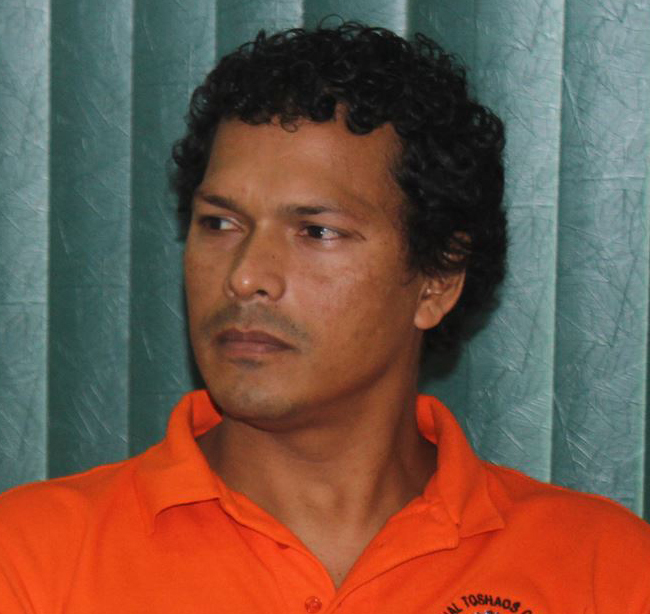The past executive of the National Toshaos Council (NTC) had to do a lot of work to counter a Ministry of Indigenous Peoples’ Affairs (MOIPA) lobby to install a chairman that it could potentially control at the just-concluded NTC annual conference, according to former Vice-Chairman Lenox Shuman.
“I would deem it a success to the point where the incoming executive would have been elected in a fair and transparent manner and that we would have stood our grounds, and we would have provided room for a proper transition for the new executive, something never really achieved in the past,” Shuman told Stabroek News by phone on Tuesday.
“We understood that the ministry was lobbying very hard for someone they could potentially control, to be the chairman of the NTC,” he added.
Based on the political neutrality statement presented to the conference on the opening day and which was unanimously approved, and in his caution to the toshaos about the two major political parties trying to infiltrate the NTC by lobbying for a chair, he said, “We would have done enough to somewhat counter that.”
The political wooing of Indigenous leaders, he said, was a matter of concern. President David Granger hosted the leaders on Monday evening and Prime Minister Moses Nagamootoo on Tuesday evening and the sessions ended early on those days. However, on Thursday evening, when Leader of the Opposition Bharrat Jagdeo held a reception for the toshaos, Shuman said, “The ministry left the hot button topic – the Amerindian Land Titling – to the very last, just to prohibit people from attending that reception.”
If the NTC is going to remain politically centred, he said, they needs to be brave enough, and forward enough to say that they need to look out for their people and in doing that they need to listen to what others have to say.
“It doesn’t mean that you have to believe it. People have to make the best decisions based on the information they are given. These politicians are like jealous girlfriends. I think, maybe they need to part ways with that attitude,” he said.
He also emphasised the importance of the NTC taking ownership of its conference. In the case of the former executive, he noted, the ministry did not allow the NTC to take charge of its own conference. “The NTC would have been in charge of about 20 percent of the conference. We couldn’t determine the content, we couldn’t determine where to place it, except some very small items. The finances for the NTC–we were in charge of roughly seven percent of the finances. That is very, very poor.”
Going forward, he said, “The NTC needs to advocate and to work harder towards having the entire conference. We were not permitted to chair the opening session. If it is the National Toshaos Conference, then it should be hosted and chaired by the NTC.”
In planning the conference, Shuman said, the NTC had put forward his name to chair the morning’s opening ceremony but the ministry removed it and placed Ovid Williams, who is not an NTC member but a ministry staffer. “At that point, the opening session was not the NTC conference opening ceremony. That was the ministry’s opening ceremony to the NTC conference. I think in this part they got that very, very wrong.”
He felt the ministry did not want him to take part in anything on the agenda because they feared he would announce the formation of a political party, which he has been advocating. The fear was unfounded, he said, because he had no such plan as it would not have shown good leadership, good principles and the kind of integrity that he believes he has.
Government also withdrawing its offer of land in Sophia, Georgetown to build the NTC secretariat and offering a larger parcel in La Bonne Intention (LBI), East Coast Demerara, he said, “literally shows little commitment to Indigenous Peoples issues.
“That means they would have lied to us as an executive for over a year and the President was disingenuous in his commitment. The commitment to give a bigger plot of land simply delays the NTC’s access to construct their secretariat, and they want to move Indigenous peoples issues out of the spotlight,” he charged.
“No one would want to travel from Ogle or Georgetown to LBI to air their concerns and then travel back. You want it accessible and close enough. Indigenous leaders do a lot more travelling than others at tremendous costs. The land that was allocated is actually quite the perfect size, in the perfect location. A bigger plot of land would not be beneficial at this point,” he added.








